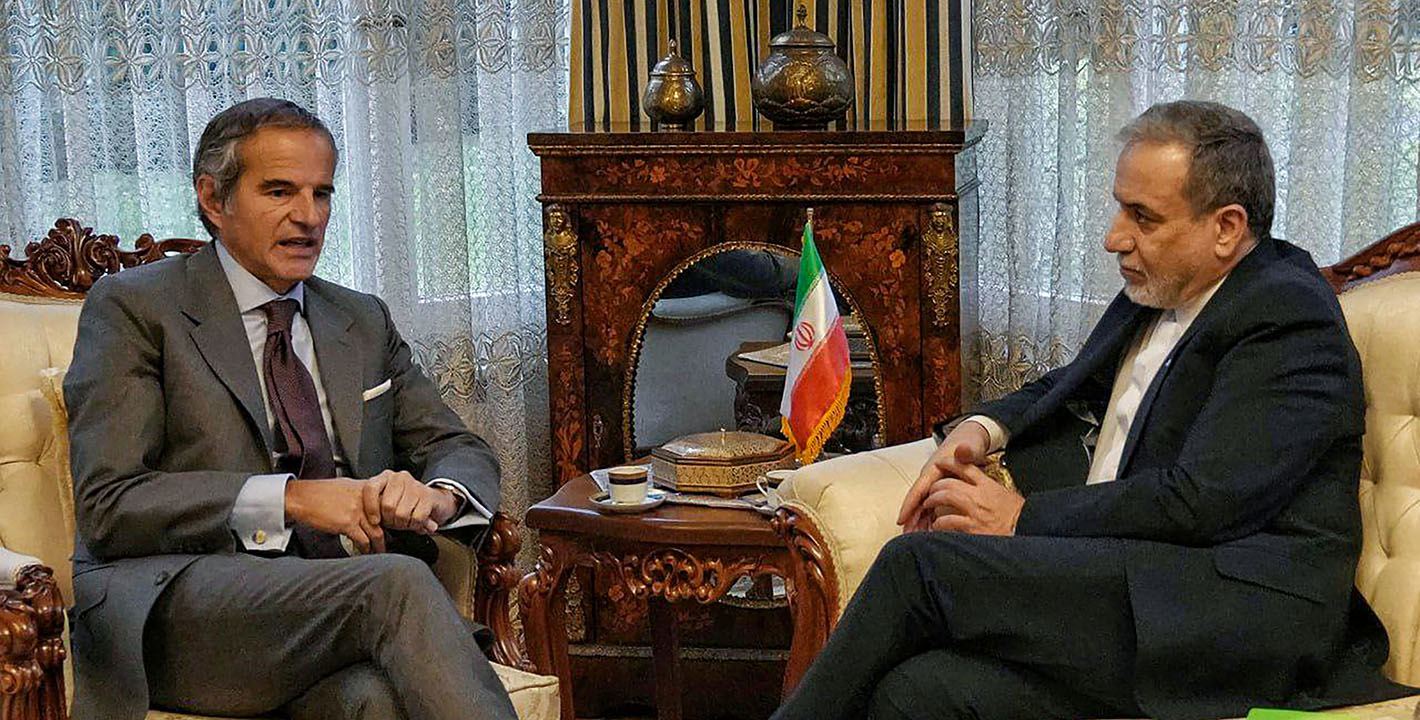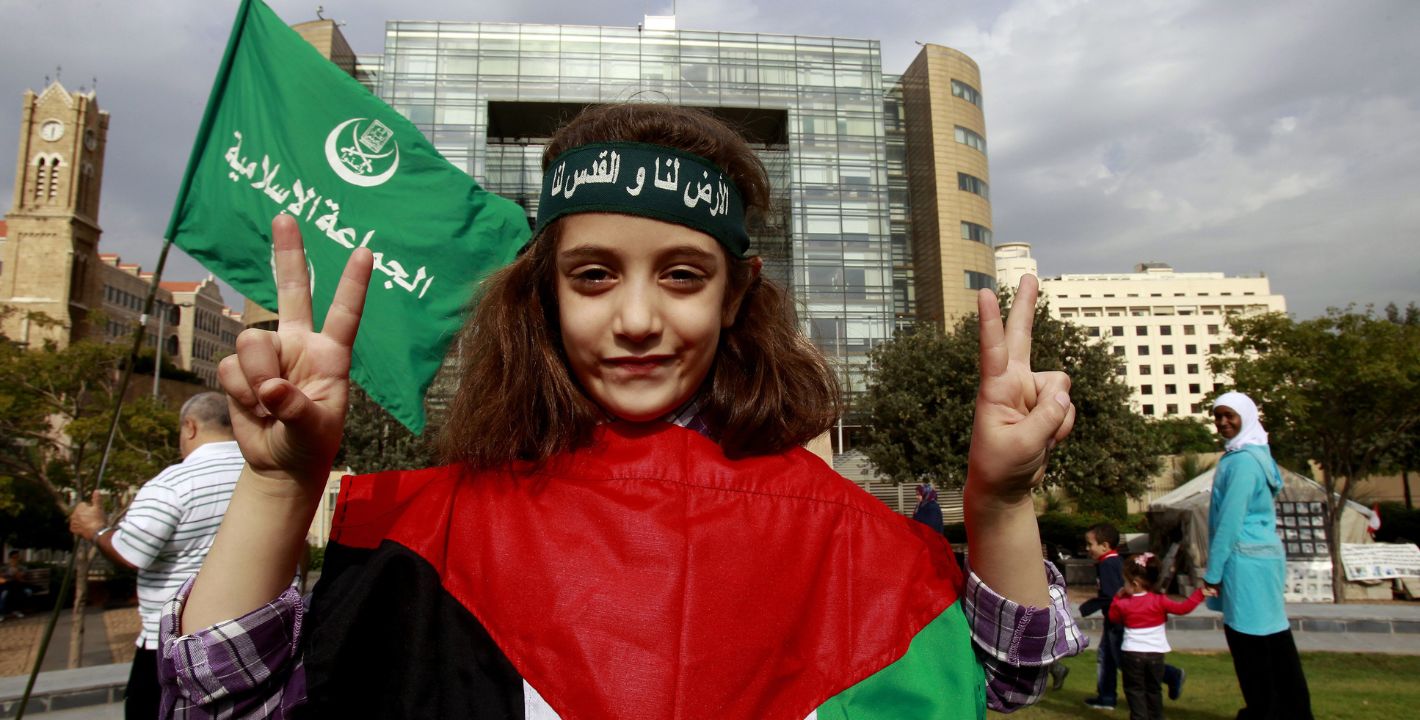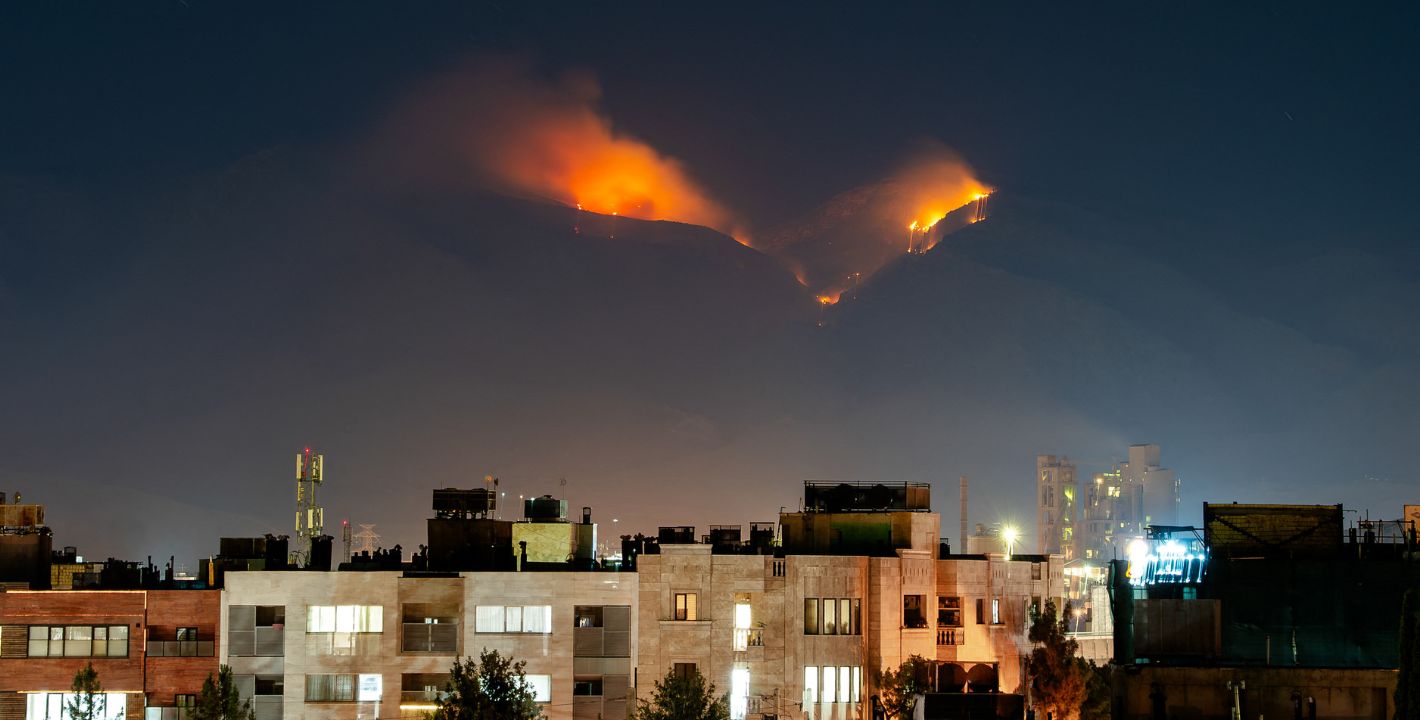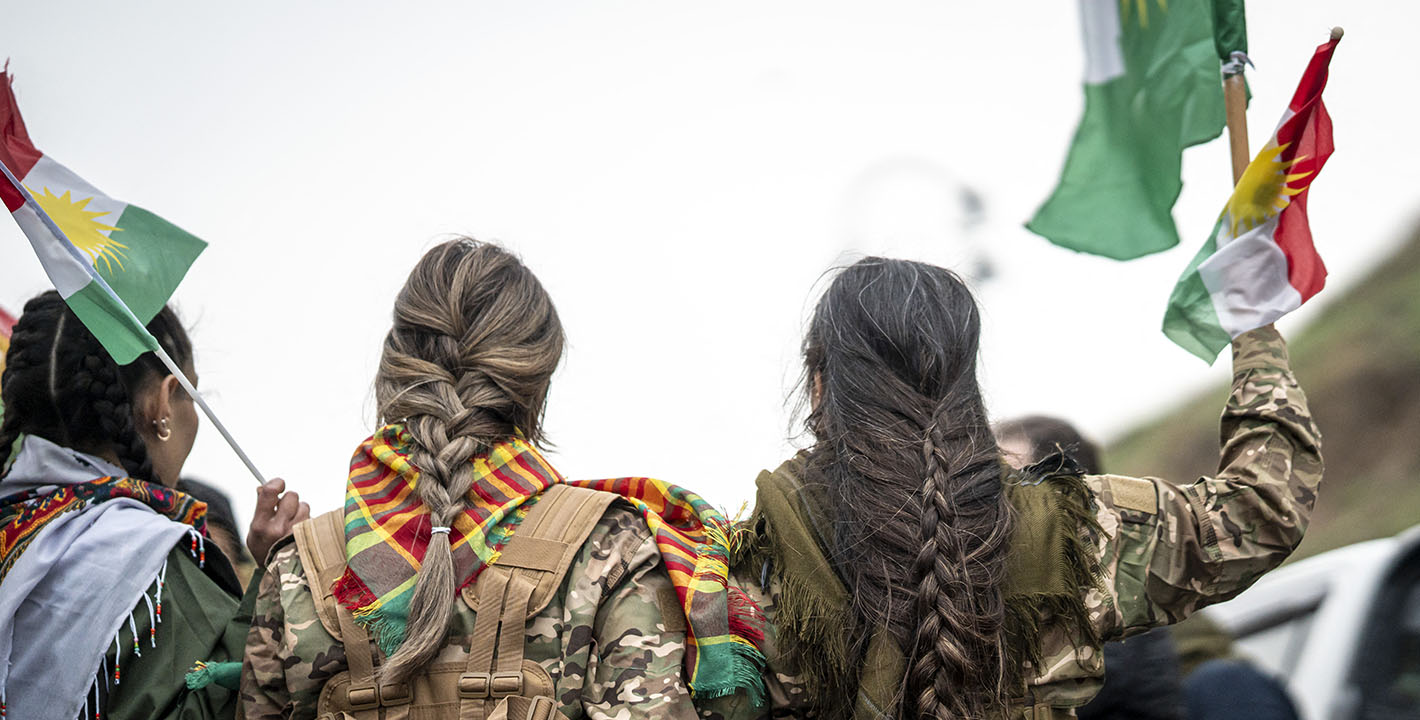Michael Young
{
"authors": [
"Michael Young"
],
"type": "commentary",
"blog": "Diwan",
"centerAffiliationAll": "dc",
"centers": [
"Carnegie Endowment for International Peace",
"Malcolm H. Kerr Carnegie Middle East Center"
],
"collections": [
"Inquiring Minds",
"Coronavirus"
],
"englishNewsletterAll": "menaTransitions",
"nonEnglishNewsletterAll": "",
"primaryCenter": "Malcolm H. Kerr Carnegie Middle East Center",
"programAffiliation": "MEP",
"programs": [
"Middle East"
],
"projects": [],
"regions": [
"Levant",
"Saudi Arabia",
"United Arab Emirates",
"Kuwait",
"Lebanon",
"Syria",
"Iraq",
"Middle East",
"Iran",
"Türkiye",
"North Africa",
"Egypt",
"Gulf"
],
"topics": [
"Political Reform"
]
}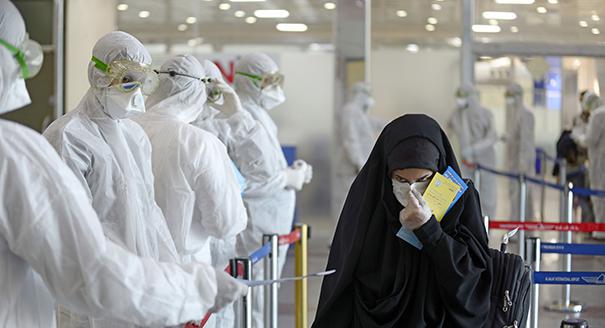
Source: Getty
What Have the Reactions to the Coronavirus Outbreak in the Middle East Shown?
A regular survey of experts on matters relating to Middle Eastern and North African politics and security.
Souha S. Kanj | Professor of medicine, head of the Division of Infectious Diseases, chair of the Infection Control and Prevention Program at the American University of Beirut Medical Center
The events related to the coronavirus outbreak are evolving quickly around the world. The situation in the Middle East is probably more complex than elsewhere. The countries of the region are a mix of rich and poor states, with variable GDPs and health infrastructures, and are frequently characterized by political instability and tension. War and violent conflicts have weakened health infrastructure in many countries. The influx of migrants though borders has contributed to healthcare related challenges. The region also has geopolitical and economic ties to both China and Iran, which recently appeared as the epicenters for the COVID-19 outbreak in the region.
There is a striking variation in the number of reported cases by country in the Middle East. Underreporting is thought to be prevalent, whether due to an unwillingness, and sometimes a lack of preparedness, to perform accurate testing. Syria for example has not reported any cases, despite its close ties to Iran. Its fragile health system is likely incapable of detecting and responding to the epidemic. The same applies to Yemen.
Some countries in the Middle East have raised the alert level during the past week by imposing school closures and other measures of social distancing. The Saudi authorities have cancelled the Umrah pilgrimage and access to Mecca to nonresidents until further notice. Some Gulf countries are requiring visa applicants to produce a negative test for COVID-19. Other countries are still reporting few cases. In Iran, the response was slow, suggesting an unwillingness to report cases before the country’s elections. Mortality among infected patients in Iran seems to be among the highest after China.
There is little to suggest that Middle Eastern countries have joined efforts to address this global viral threat. The Arab League has remained silent. No meetings have been announced to discuss the evolving situation. Arab countries in the Middle East have so far missed an opportunity to overcome political divisions and closely collaborate to contain the spread of the virus in the region. It might not be too late to engage in coordination, especially from the wealthier states, to provide technical, material, and financial assistance to their neighbors.
Amir A. Afkhami | Associate professor of psychiatry, global health, and history at George Washington University, author of A Modern Contagion: Imperialism and Public Health in Iran’s Age of Cholera.
Karl Marx once said that history repeats itself, first as tragedy, then as farce. Nothing illustrates this more than the series of baffling policy decisions by Iran’s leadership that have resulted in the largest outbreak of the novel coronavirus (COVID-19) in the region. Despite advances in the biomedical sciences and infectious disease control in the past century, the Iranian government’s response to the coronavirus outbreak has been hobbled by ideological, religious, and economic concerns.
Other countries in the Middle East have followed suit, often prioritizing their non-medical domestic and foreign policy interests in establishing travel bans, quarantines, and other forms of public health precautions. These religious, political, and economic determinants of infectious diseases hark back to the pre-World War I period in the region. Devotional visits to shrine cities and burials at holy sites played an important role in the dissemination of pandemic outbreaks in the Iranian and Ottoman Empires throughout the 19th and early 20th centuries. Similarly, political, economic, and religious interests often took precedence over public welfare in the way quarantines, travel bans, and disinfection policies were established within the empires and on their frontiers. This shows us that historic social and political forces continue to shape the impact of contagions on the peoples of the Middle East.
Basem al-Shabb | Former Lebanese parliamentarian, American Board in general and cardiothoracic surgery
The response to the COVID-19 epidemic in the Middle East has followed the usual script in the region for dealing with calamity. Whereas human suffering invites cooperation in other places, in the Middle East it seems to accentuate cultural and sectarian tensions. As reports of cases were trickling out of Iran, the authorities engaged in denial. Only recently did the Syrian Health Ministry confidently state that there were no known cases in Syria. In Lebanon, flights from Iran, the epicenter of the epidemic, continued unabated and screening at the airport was instituted rather late in the game. Throughout the region, there is an undercurrent of sectarianism. While Iran wrestles with a massive epidemic, Egypt has reported only a few cases and, interestingly, Turkey has reported none. There is hardly any cooperation or exchange of information on COVID-19 among the countries of the Levant.
The epidemic has also touched on religious sensitivities, with some churches in Lebanon insisting on pursuing communion using a single utensil. There is no doubt the coronavirus has brought out the usual regional reactions of denial, delayed responses, myth-mongering, sectarianism, as well as conspiracy theories.
Bader al-Saif | Nonresident fellow at the Carnegie Middle East Center in Beirut, where his research focuses on the Gulf and Arabian Peninsula
The coronavirus outbreak is a potent reminder that the Middle East is no different than the rest of the world. The outbreak has reinforced preexisting tendencies in the region, where it is no secret that systems are largely broken. It has further exposed governmental weakness, evidenced in ambiguous, inconsistent policies. Crisis management and transparency are largely lacking, and so is the faith of citizens in governments’ ability to protect them. Political considerations have triumphed over necessary health directives in various states, putting citizens at further risk, whether by allowing the continuation of flights from high risk areas, such as Iranians traveling to Lebanon, or deferring necessary testing, as in Egyptians traveling to Kuwait. There are notable exceptions, such as Saudi Arabia, where the state has managed the outbreak of the coronavirus and peoples’ reactions to it.
Responses have ranged from denial to fear. Some assume the virus is a conspiracy theory, while others are misinformed about its nature. The virus has also justified racist slurs. With most of the Middle East contracting the virus via Iran, the anti-Iran camp has condemned Iran’s irresponsibility and poor services (ignoring the impact of U.S. sanctions), with some even suggesting that the virus is a Shi‘a phenomenon aimed at infecting the Sunni-majority Middle East.
There has been a third, more measured response among less ideological people. These include business owners, who are concerned about the economic impact of the outbreak; expatriates barred from returning to their homes due to travel bans; families who do not want their children’s education affected by prolonged breaks; and sensible policymakers who have sought to jointly coordinate responses. The outbreak has reminded Middle Easterners of their shortcomings. They patiently are awaiting a breakthrough that would end the coronavirus outbreak, so they can redirect their efforts to addressing other problems long plaguing the region.
About the Author

Editor, Diwan, Senior Editor, Malcolm H. Kerr Carnegie Middle East Center
Michael Young is the editor of Diwan and a senior editor at the Malcolm H. Kerr Carnegie Middle East Center.
- Iran and the New Geopolitical MomentCommentary
- A Mechanism of CoercionCommentary
Michael Young
Recent Work
Carnegie does not take institutional positions on public policy issues; the views represented herein are those of the author(s) and do not necessarily reflect the views of Carnegie, its staff, or its trustees.
More Work from Diwan
- When Football Is More Than FootballCommentary
The recent African Cup of Nations tournament in Morocco touched on issues that largely transcended the sport.
Issam Kayssi, Yasmine Zarhloule
- U.S. Aims in Iran Extend Beyond Nuclear IssuesCommentary
Because of this, the costs and risks of an attack merit far more public scrutiny than they are receiving.
Nicole Grajewski
- The Jamaa al-Islamiyya at a CrossroadsCommentary
The organization is under U.S. sanctions, caught between a need to change and a refusal to do so.
Mohamad Fawaz
- Iran and the New Geopolitical MomentCommentary
A coalition of states is seeking to avert a U.S. attack, and Israel is in the forefront of their mind.
Michael Young
- Kurdish Nationalism Rears its Head in SyriaCommentary
A recent offensive by Damascus and the Kurds’ abandonment by Arab allies have left a sense of betrayal.
Wladimir van Wilgenburg




